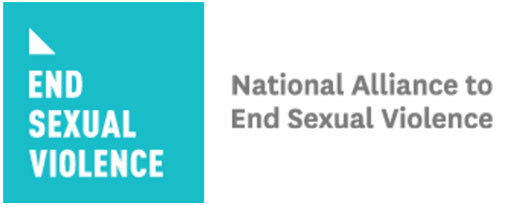NATIONAL SEXUAL VIOLENCE RESOURCE CENTER
There is a national network of community-based rape crisis centers and local organizations who support the needs of sexual assault survivors. These centers exist across the United States to provide supportive services to victims of sexual assault. For more information, click here.
FROM VICTIM TO SURVIVOR
Sexual Violence affects every aspect of a person’s life-her/his body, emotions, thoughts, behaviors, spirituality and relationships with others and the outside world. This is true whether it is acquaintance rape, stranger rape, date rape, child sexual abuse or marital rape.
How a survivor responds to and heals from sexual violence can be greatly impacted by many variables. Some of the impact of the trauma depends upon things such as age, how the person was before the traumatic event, the victim’s coping abilities and who the offender was. What happened during the crime can affect the survivor’s experience, too, including the severity, frequency and duration of the violence and the degree of personal violation. Also important is how available support and resources are and how much help a community offers its victims (Koss and Harvey, 1991).
Although every survivor’s experience and reactions are different, there are some fairly consistent crisis reactions and long-term issues.
CRISIS RESPONSE
This period lasts from a few days to several weeks after the trauma. Often survivors exhibit one of two styles: expressed or controlled. Many survivors show pieces of both at different times. The following are some common crisis reactions to sexual violence:
- Body: trauma response (fight or flight), injury, pregnancy, STD’s, nausea, soreness, exhaustion
- Emotions: shock, numb, guilt, fear/terror, out of control, powerless/helpless, dirty, ashamed, anxiety
- Thoughts: disbelief, self-doubt, short attention span, racing thoughts, What if?, Where is he?, What’s going to happen now?, What should I do?, How are they going to react?
- Behaviors: eating (less/more), sleeping (less/more), crying, laughing, screaming, joking, tense, shaking/trembling, restless, agitated, silent, chatty
- Environment: school/work (when to return/fears about returning), stressed by children or other life demands, need to spend time within criminal justice system
- Intimacy: varying needs with being touched and left alone, trust and interpersonal difficulties
- Family: take over, control, revenge, questions, shock
- Spirituality: “why me?,” struggles with God, awareness of the fragility of life
AFTER THE CRISIS
Reorganization/Disorganization
After the crisis, the survivor may realize that her/his life is changed forever. Figuring out how to get on with life can be a very important first step after the crisis period. Some people re-group, go on, but have underlying unexpressed feelings and issues that will seep out in various ways over time. They may decide at some point to look more closely at their experience of sexual violence and its effects to heal in a more thorough way, or they may simply “cope” day in and day out.
Some people have a really hard time getting their life back together. This is especially true of survivors with additional life problems such as poverty or an abusive relationship. If all survivors, especially those with multiple barriers, don’t receive the support they need to heal, things just keep getting worse.
Survivors may experience any or all of the following long-term reactions. How they respond may have something to do with where they are on the healing process continuum.
- Physical: flashbacks, disconnection with body, sensory triggers, decreased immune system, fatigue
- Emotions: vulnerable, isolated, anxious, damaged, sensitive, out of control, grief/loss, anger/rage, generalized fear, depression, defensiveness
- Thoughts: Prevention focus, low self-esteem, self-blame, rape-related thoughts, “I’ll never be the same, I make people feel uncomfortable, No one understands”
- Behaviors: crowd avoidance, withdrawal, changes in appearance, self-endangerment, self-medication, self injury, suicide attempts, avoiding sex or having sex when she/he really doesn’t want to, avoiding being alone, disengaging from previously enjoyed activities
- Environment: contact with perpetrator, seasonal reminders/anniversaries, media, societal beliefs, criminal justice process
- Intimacy: sexuality, relationship doubts, further victimization, trust
- Family: critical, loss of support, have to deal with their own underlying life experiences, take over again, isolate/separate, relationship growth
- Spirituality: Bad Karma/God’s will, Good vs. evil, subscribing meaning to the event
The Healing Process
Healing is a slow, non-linear process of re-gathering one’s life and courageously moving forward. Healing is not about forgetting the rape or the abuse although taking breaks from active healing work is very normal and often healthy. There is a balance between healing work and “getting on with your life.”
The specifics of the healing process vary greatly from person to person. The process may start right after the rape or 25 years later. It is often something the survivor re-enters as new issues arise and may be precipitated by a terrifying trigger or an exciting new relationship.
Each survivor should be encouraged to trust her/himself and what she/he needs at all times. Most survivors benefit from the help of trained professionals to guide and support their healing work.


